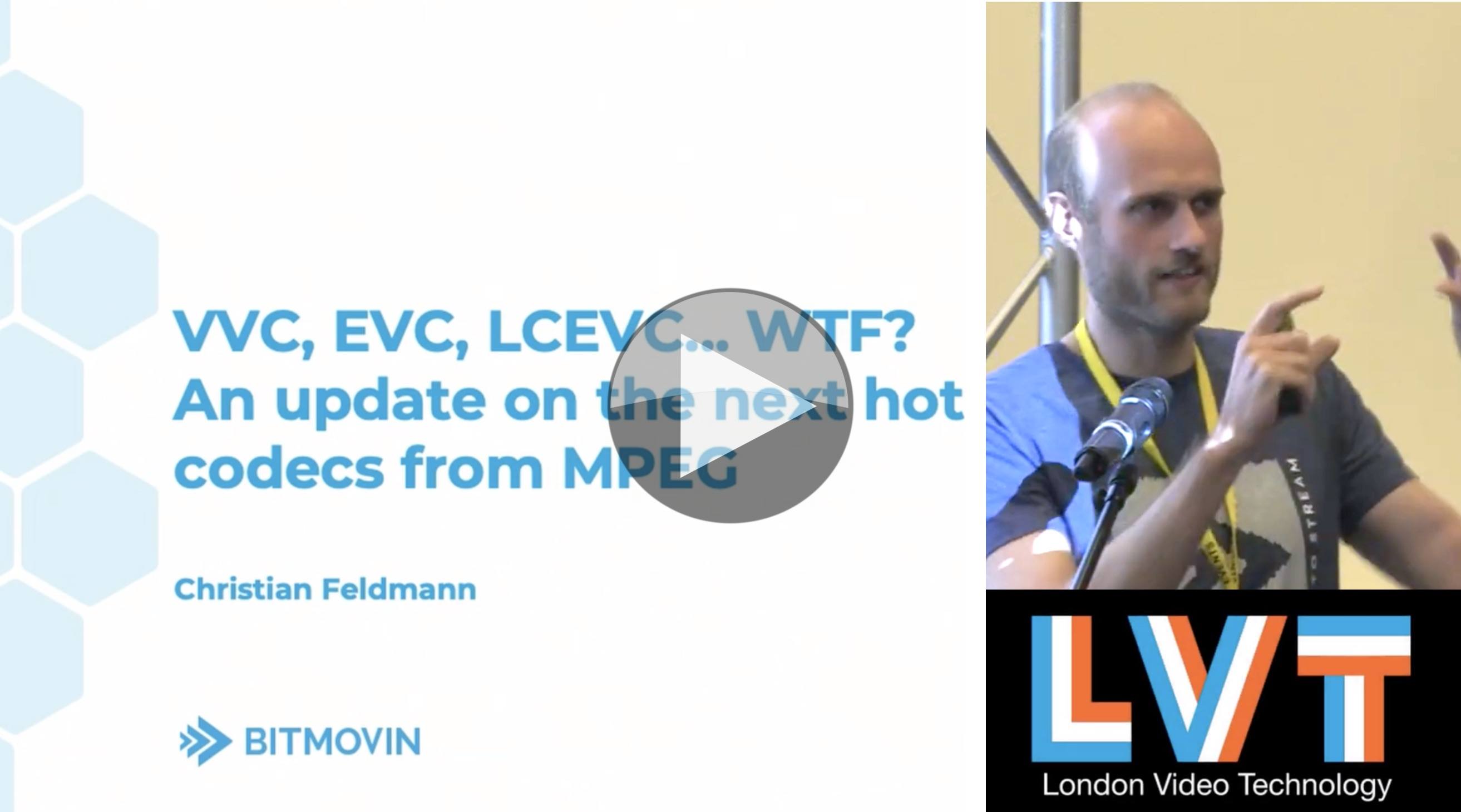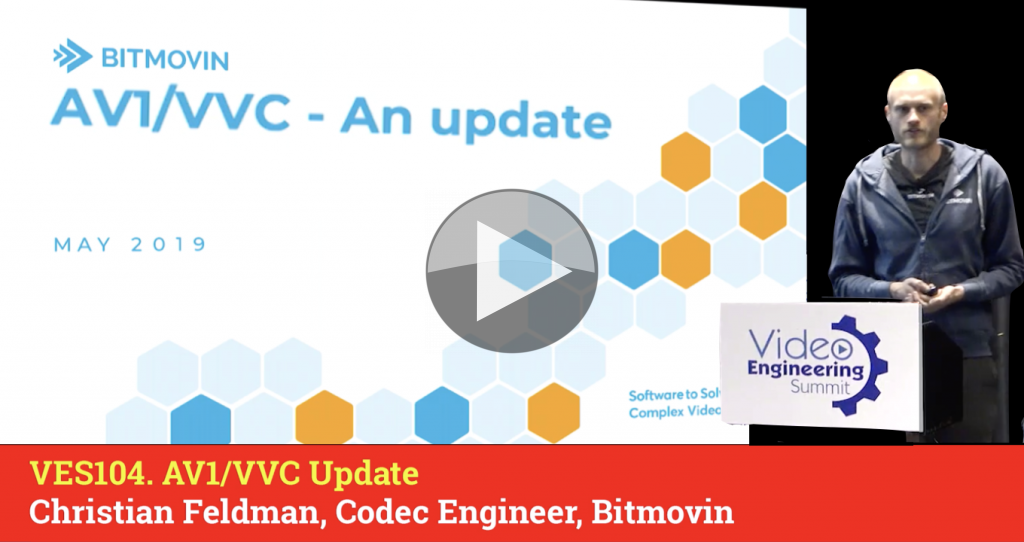
The next-gen codecs are on their way: VVC, EVC, LCEVC but, given we’re still getting AV1 up and running, why do we need them and when will they be ready?
MPEG are working hard on 3 new video codecs, one in conjunction with the ITU, so Christian Feldmann from Bitmovin is here to explain what each does, the target market, whether it will cost money and when the standard will be finalised.
VVC – Versatile Video Codec – is a fully featured video codec being worked on as a successor to H.265, indeed the ITU call it H.266. MPEG call it MPEG-I Part 3. Christian explains the ways this codec is outperforming its peers including a flexible block partitioning system, motion prediction which can overlap neighbouring macroblocks and triangle prediction to name but three.
EVC is the Essential Video Codec which, intriguingly, offers a baseline which is free to use and a main profile which requires licences. The thinking here is that if you have licensing issues, you have the option of just turning off that feature which could five you extra leverage in patent discussions.
Finally, LCEVC – the Low Complexity Essential Video Codec allows for enhancement layers to be added on top of existing bitstreams. This can allow UHD to be used where only HD was possible before due to being able to share decoding between the ASIC and CPU, for example.
These all have different use cases which Christian explains well, plus he brings some test results along showing the percentage improvement over today’s HEVC encoding.
Watch now!
Speaker
 |
Christian Feldmann Codec Engineer, Bitmovin |



